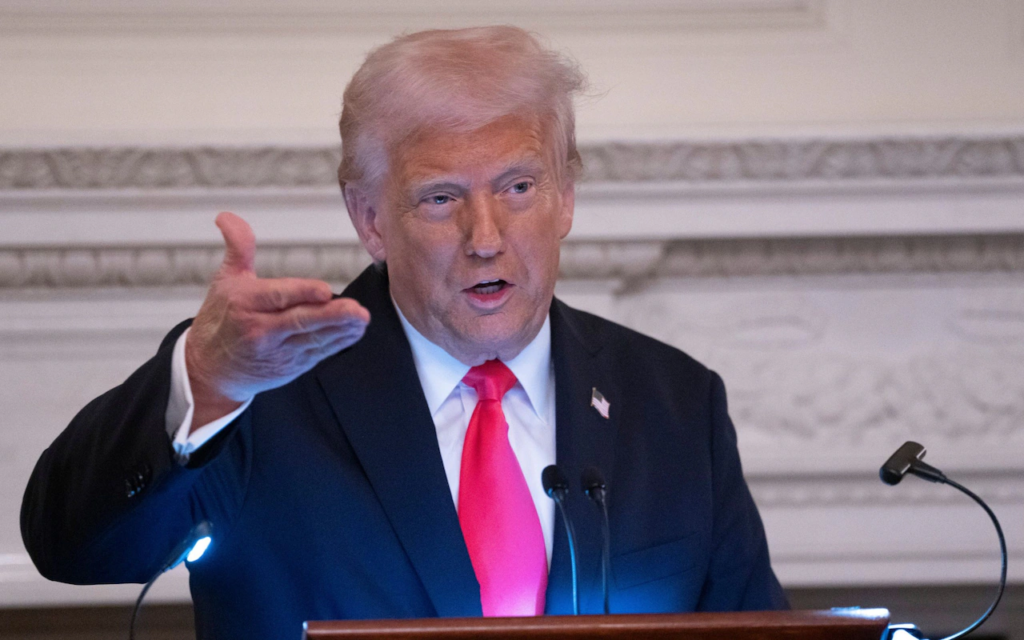Sir Keir Starmer’s plans to form a “coalition of the willing” in support of Ukraine are facing mounting scepticism from senior Conservative figures, who argue that the proposed alliance lacks substance and staying power.
Andrew Griffith, the shadow business secretary, cast doubt on the initiative, questioning whether European allies would commit meaningfully to the project—particularly under UK leadership.
“I am sceptical about proposals for a pan-European coalition of the willing, because when the going gets tough, the willing don’t turn out to be that willing,” Griffith said in an interview with The Telegraph’s Politics Newsletter. “At current levels of funding, which the Conservatives have long said should increase, I don’t see the UK having surplus capacity beyond its own defence needs.”
He added: “I also remain unconvinced that a pan-European force would accept UK leadership.”
The comments reflect a broader Conservative pivot from cautious support to open critique of the Labour leader’s foreign policy approach. Earlier this month, Business and Trade Secretary Kemi Badenoch described the coalition as a “welcome” development. But by the following week, she struck a more cautious tone, stating that any deployment of British troops would ideally be avoided and must require parliamentary approval.
Sir Keir first proposed the coalition on March 2, aimed at aligning willing European and Western nations to back Ukraine’s defence efforts in the event of a peace deal. The Prime Minister has since hosted four meetings with French President Emmanuel Macron and other leaders to rally support.
Yet insiders, including former UK defence attaché John Foreman, have warned the initiative appears hollow. Calling Starmer’s rhetoric “cringey” and “gnomic,” Foreman said the plan lacks concrete commitments and may be no more than a “tentative first step.”
Criticism has also come from within the Ministry of Defence, with senior military figures citing a lack of detail regarding troop numbers, equipment, or the operational scope of the coalition. Shadow Defence Secretary James Cartlidge echoed these concerns in a letter demanding clarification on whether all branches of the UK military would be involved and requesting reassurances that British troops would be protected from vexatious human rights prosecutions.
While Starmer has spoken positively of the momentum behind the group, calling it “stronger and broader,” scepticism remains about its long-term effectiveness and feasibility.
“This is not an EU grouping. It’s broader,” Starmer said. “Nobody knows what the shape of a peace deal will be, but there’s clearly been political progress. The coalition we’ve built is significant in its own right.”
Domestic Policy and Party Reflections
In the same interview, Griffith also reflected on domestic Conservative performance, admitting that previous Tory governments failed to deliver on promises to reduce bureaucracy and support small businesses.
“I don’t want to be another Conservative business secretary who talks about cutting red tape but doesn’t walk the walk,” he said. “It is imperative that entrepreneurs reap the rewards. I regret that this hasn’t always been the case—even under Conservative governments.”
He acknowledged that Boris Johnson’s administration had abandoned key deregulatory efforts, including Lord Frost’s plan to unwind EU laws, citing resistance from within Whitehall. The government eventually dropped plans to repeal all EU-derived regulations by the end of 2023.
Griffith, a former adviser to Boris Johnson and MP for Arundel and South Downs, remained measured when asked about Johnson’s potential return to frontline politics.
“The focus right now must be on holding this government accountable,” he said. “We have an excellent opposition leader—someone I was among the first to support—and our collective energy, including that of former leaders, should be directed toward supporting Kemi Badenoch in taking the fight to Labour.”

